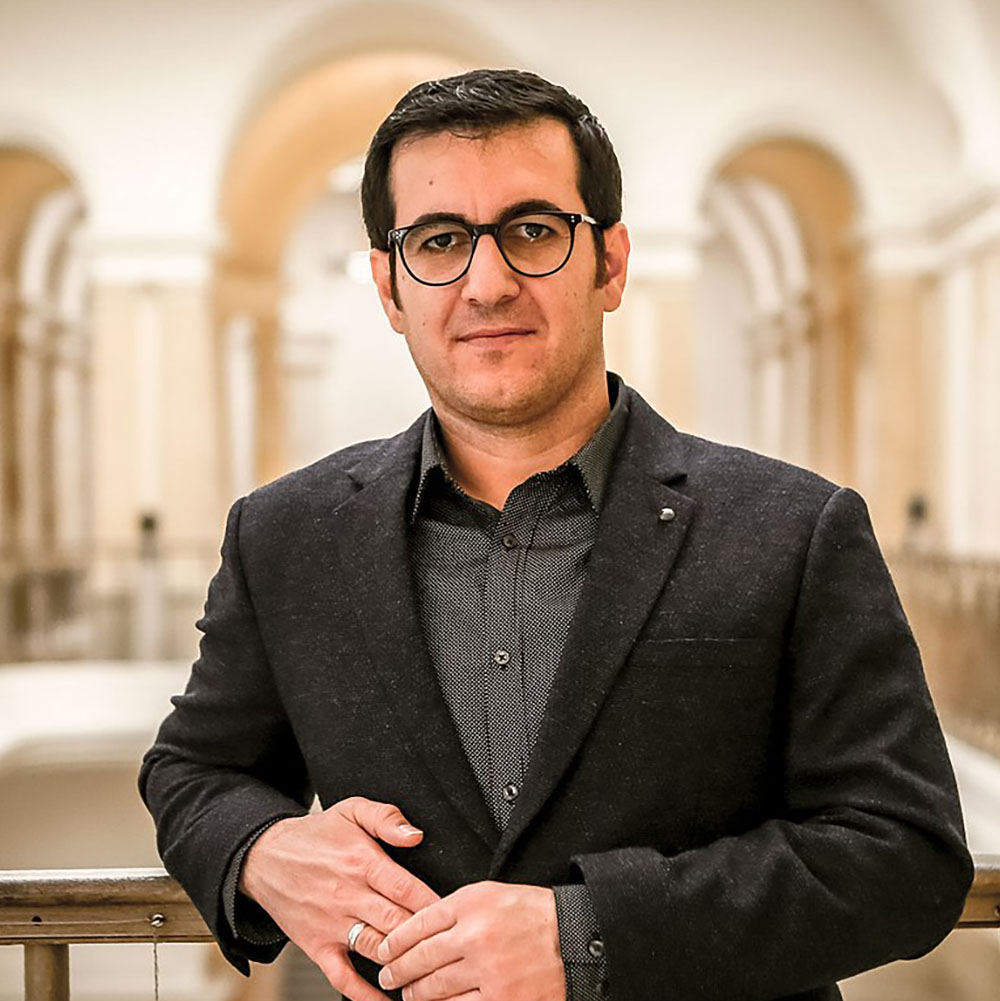Jian Omar (He/Him)
I realized early on that society doesn't move forward on its own, it's everyone's contribution that counts.

As a member of the Berlin House of Representatives, he advocates, among other things, for simplified naturalization to also promote political participation. His vision is an inclusive society that promotes diversity.
I am Jian Omar, born in 1985 in Qamishli, Northern Syria. In 2005 I came to Germany and finished my studies in political science at the Free University of Berlin. Since 2021 I am a member of the Berlin House of Representatives, a member of the Green parliamentary group and spokesperson for migration, participation and escape.
There are numerous aspects that I would like to change, but if I had to commit to just one thing, it would be the consciousness but also actual transformation of Germany into a modern, digital immigration society. I am firmly convinced that we can only master the current challenges as an inclusive, diverse society.
As a member of the Kurdish minority oppressed in Syria, I came into contact with politics very early in my life and dealt with issues concerning minority rights, which made me very politicized. In Germany, I found the appropriate democratic space to deal even more intensively with human rights issues and minority rights, which led me to my studies in political science and ultimately to political work in Bündnis 90/Die Grünen.
Yes, definitely, because I’m passionate about fighting for positive change in society and I’m deeply involved in political issues. I realized early on that society doesn’t move forward on its own, but that everyone’s contribution counts. It is in my nature to actively contribute to this change – that is why politics is also my calling.
Originally, I came to Germany with a study visa, later I was put on the list of persecuted people in Syria because of my political activities for human rights in Syria and so I received political asylum in Germany. From here I supported e.g. human rights movements and democracy movement in Syria since 2011. However, the biggest hurdle here in Germany was initially the language. When I came to Germany at the age of 20, I didn’t know a word of German. I had to find my way around on my own, I had to understand the structures here and find my place in society.
Nationwide, I see great difficulties in simplifying the citizenship process in order to attract professionals and executives. I myself see citizenship as an enrichment, because a country like Germany benefits from diversity and immigration. We should be proud that people want to become citizens here. But the current bureaucratic and legal rules require that people who want to become citizens must first “earn” their citizenship. Conservatives and the right put the brakes on reforms such as shortening the citizenship period or recognizing special achievements in favor of a “merit” approach to citizenship.
From a perspective, people with a migration background experience this reality in many facets every day. Often, they do not really feel welcome or part of our society. The reason why Germany has difficulties to see itself as a country of immigration, although we benefit from migration, is that we have not dealt enough with the questions of how racist and discriminatory our society really is and how structural changes should be addressed. This debate should have taken place decades ago when guest workers arrived. We should ask ourselves how we can best organize the arrival of people and enable their full participation. This is also the reason why I joined the Bündnis 90/Die Grünen, which is politically committed to this change. I remain hopeful that together we can work on this and catch up.
After all, the wonderful thing is: in our democracy, there are many opportunities to get involved. First of all, it’s important to deal with, reflect on and understand the issue of racism and discrimination. Based on this, we can consider how we can become active. Even participating in elections and voting against parties like the AfD or taking part in demonstrations against racism are forms of engagement. If as many of us as possible get involved at the societal level, we can take concrete action against racism together and achieve a lot.
In addition, it is of course central to understand that racism is deeply rooted in our society, but also in different forms and sometimes very subtle. Racism exists in various forms, both visible and hidden. Even if not everyone is directly affected, we need to address the impact it has on our community. Here, it also helps to first become aware of the issue ourselves. Everyone can act in their own environment, recognize racist structures and counteract them. We encounter racism in everyday life all the time and everywhere – on the street, in the subway, at work and in the housing market. We must intervene, not look away. In schools and workplaces, we encourage intervention and support for those affected. Solidarity and legal assistance are key to actively fighting racism.
I have hope, through my encounters with committed people who are actively working against racism. It’s encouraging to see so many people speaking out against racism in surveys, even though that commitment isn’t always visible in practice. The potential is undoubtedly there, but it just needs active development. It’s about the actions, not just the words. And they will be particularly important in the future.
